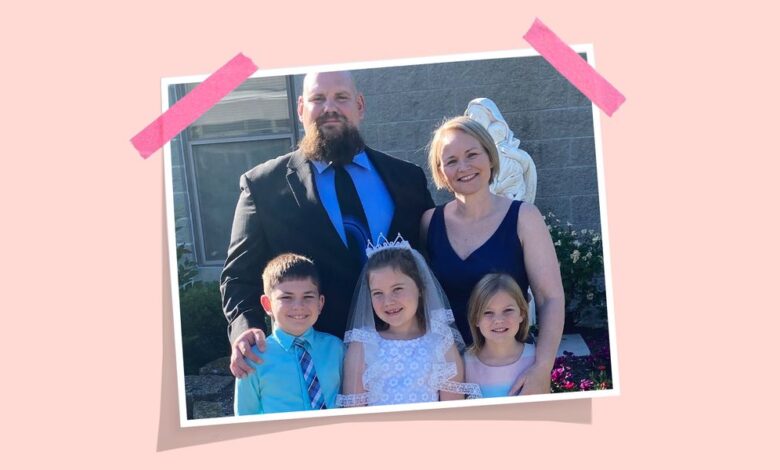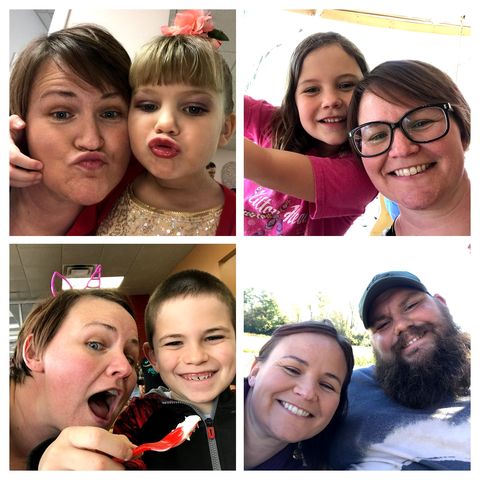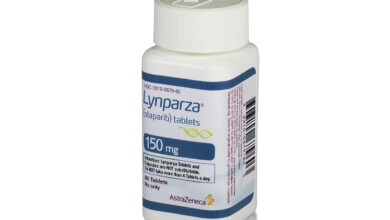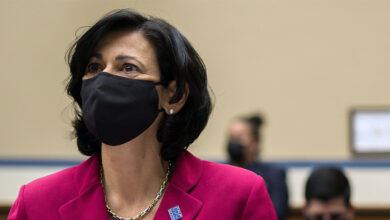3 Unexpected Ways My Rheumatoid Arthritis Affects My Kids

[ad_1]
When Leanne Donaldson was diagnosed with rheumatoid arthritis (RA) in 2017, she quickly understood what she was facing. The autoimmune disease wreaks havoc on the joints and other parts of the body, leading to symptoms like stiffness and swelling in the fingers and toes, numb hands, and problems with the eyes like inflammation and light sensitivity. So she wasn’t surprised when her flares kept her from doing many things on her to-do list, like cooking and laundry. What she didn’t expect was the extent to which her RA would impact her children.
“Even without RA, parenting is a challenge,” says Donaldson, a former teacher who lives in Hebron, Kentucky with her husband and three kids, ages 7, 9, and 10. “But with RA, the most difficult part is shielding my children from the worst of the disease. For example, when I put on a smile for the latest project they want to show me, even though I could barely drag myself out of bed. Not to mention shouldering the guilt about the millions of other ways my disease impacts their life.”
Here are some of the unexpected ways RA affects Donaldson’s kids, along with tips on how she copes with the impact it has on them.
1. They’re more susceptible to certain chronic conditions.
Kids born to women with RA are at greater risk of developing the condition, as well as thyroid disease and epilepsy. But Donaldson, whose older daughter has been diagnosed with juvenile rheumatoid arthritis, looks at those odds as an opportunity for growth. “One of the silver linings of having RA myself is I can be an example to her on how to positively manage her disease by listening to her body—and yet, at the same time, show her that living with RA is about how you look at it,” says Donaldson. “Sure, we often have to do things differently or on a different time schedule, but it doesn’t necessarily mean that RA has to keep us from doing what we love.”
2. They know about the importance of diet and exercise.
Eating junk food and playing video games can almost be considered a rite of passage for kids of a certain age. But watching their mom deal with the symptoms of a chronic disease has made Donaldson’s children take an early interest in living healthy. For example, they’re very interested in how different things like gluten and sugar make them feel. “As my kids get older, it is interesting to see how their relationship with their growing bodies has changed,” she says. “I talk a great deal with them about listening to their bodies. They know that it is especially important for me to listen to mine.”
What Donaldson does and doesn’t eat, for instance, makes all the difference in how she’s able to manage her RA. Processed foods and those high in sugar and/or saturated fat can trigger a flare. “We talk about how what we eat changes how our bodies respond,” says Donaldson. “They see in a real way how important it is to make food choices that are good fuel for our bodies. Having a positive relationship with your body is just so important, and I love that I can show that to my children.”
3. They’re super responsible.
Leaning on others—including her husband and children—doesn’t come naturally to Donaldson, a self-described “do it all myself” type of mom. But by allowing her kids to step up and help out when she has a flare has changed her children—for the better. They’ve become more independent, empathetic, and reliable. “It has taken me years to figure out that by attempting to hold our life together and trying to do it all myself, I was not only hurting myself but also hurting my children,” she says. “I’d try to do too much, ignore the pains of my body, and then miss out on important things because I just couldn’t recover. Many people don’t have the help and support that I have. And I was being selfish by not accepting that help.”
Another thing she’s discovered in the years since her diagnosis: Self-care is not only a big part of managing RA, but it also allows her to be a better mom. Her advice to other parents with RA? “Find creative ways to work around the energy restrictions you have,” she suggests. “Spend some quiet time thinking or journaling each day to help manage some of the guilt. Because the sooner you realize that no parent is perfect—with or without RA—the more energy you will have for the more important things. We are our own worst critics,” she adds. “Chances are, our kids aren’t nearly as impacted by our disease as we think they are.”
This content is created and maintained by a third party, and imported onto this page to help users provide their email addresses. You may be able to find more information about this and similar content at piano.io
[ad_2]
Source link






